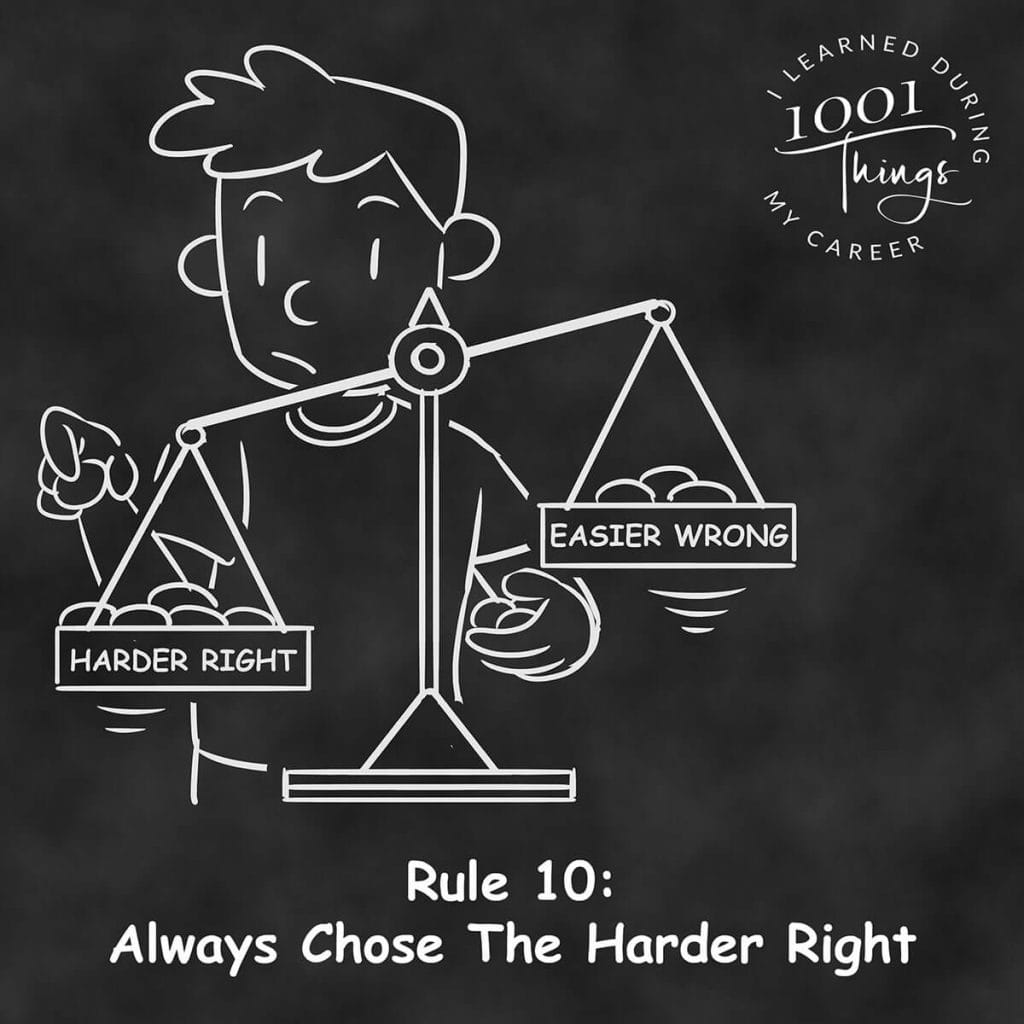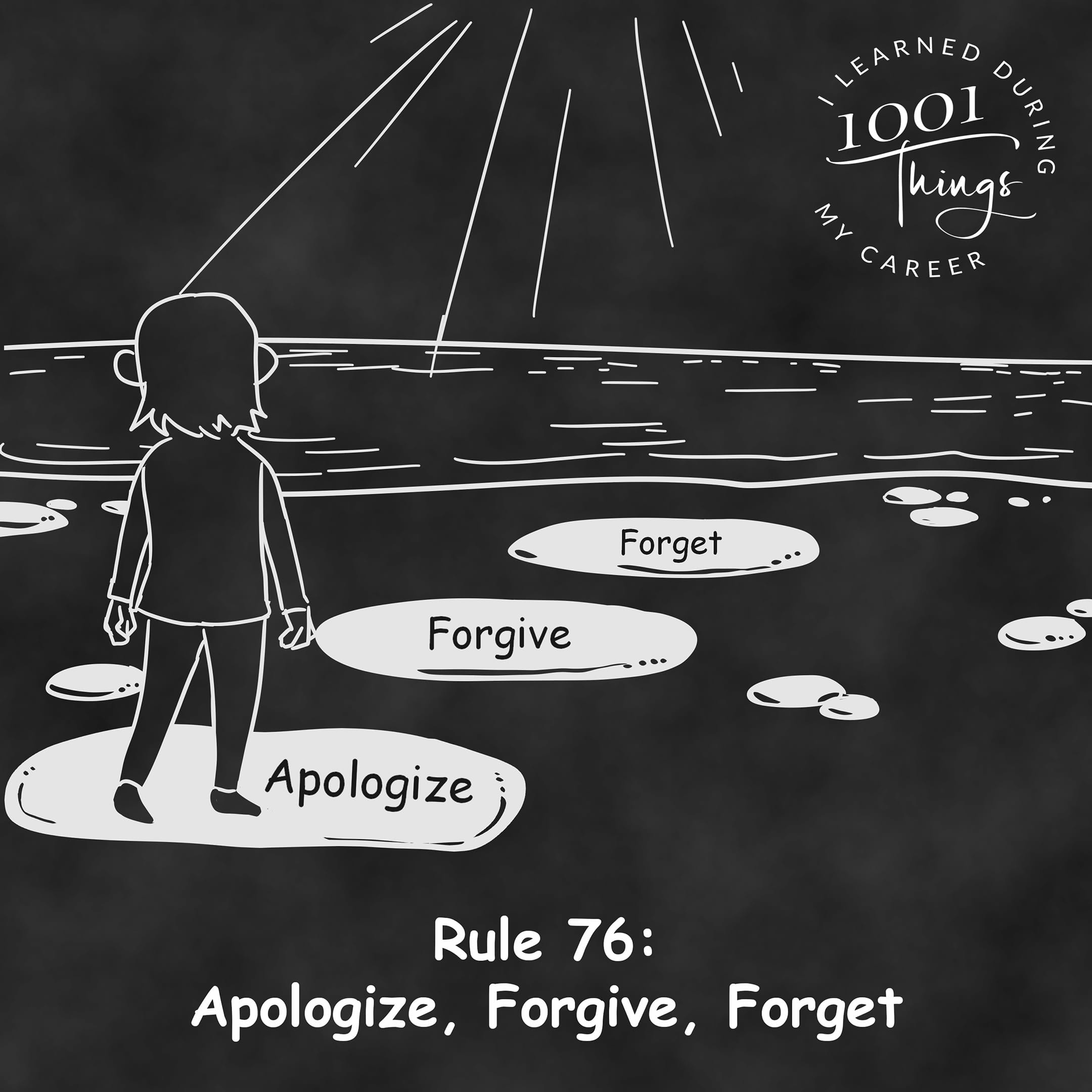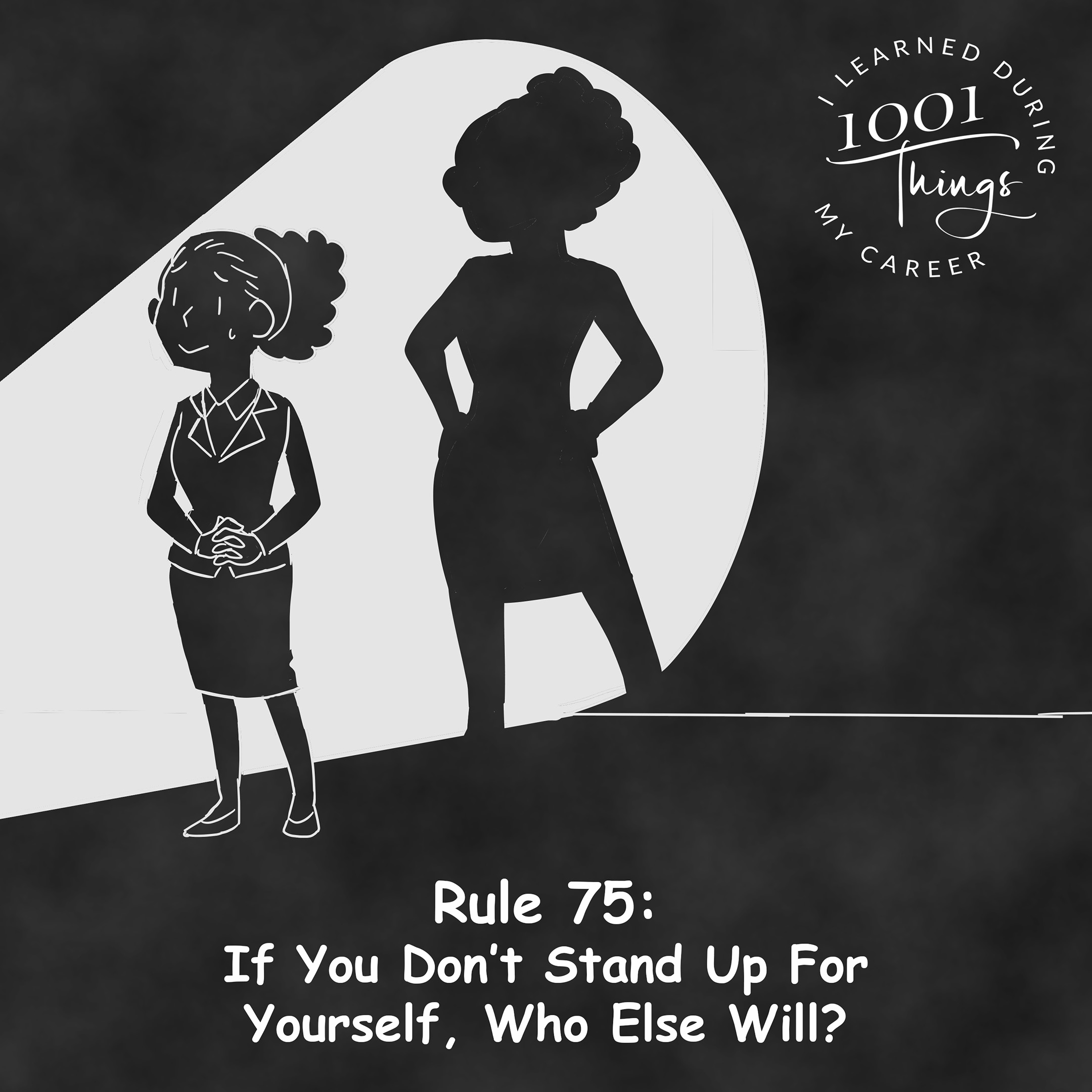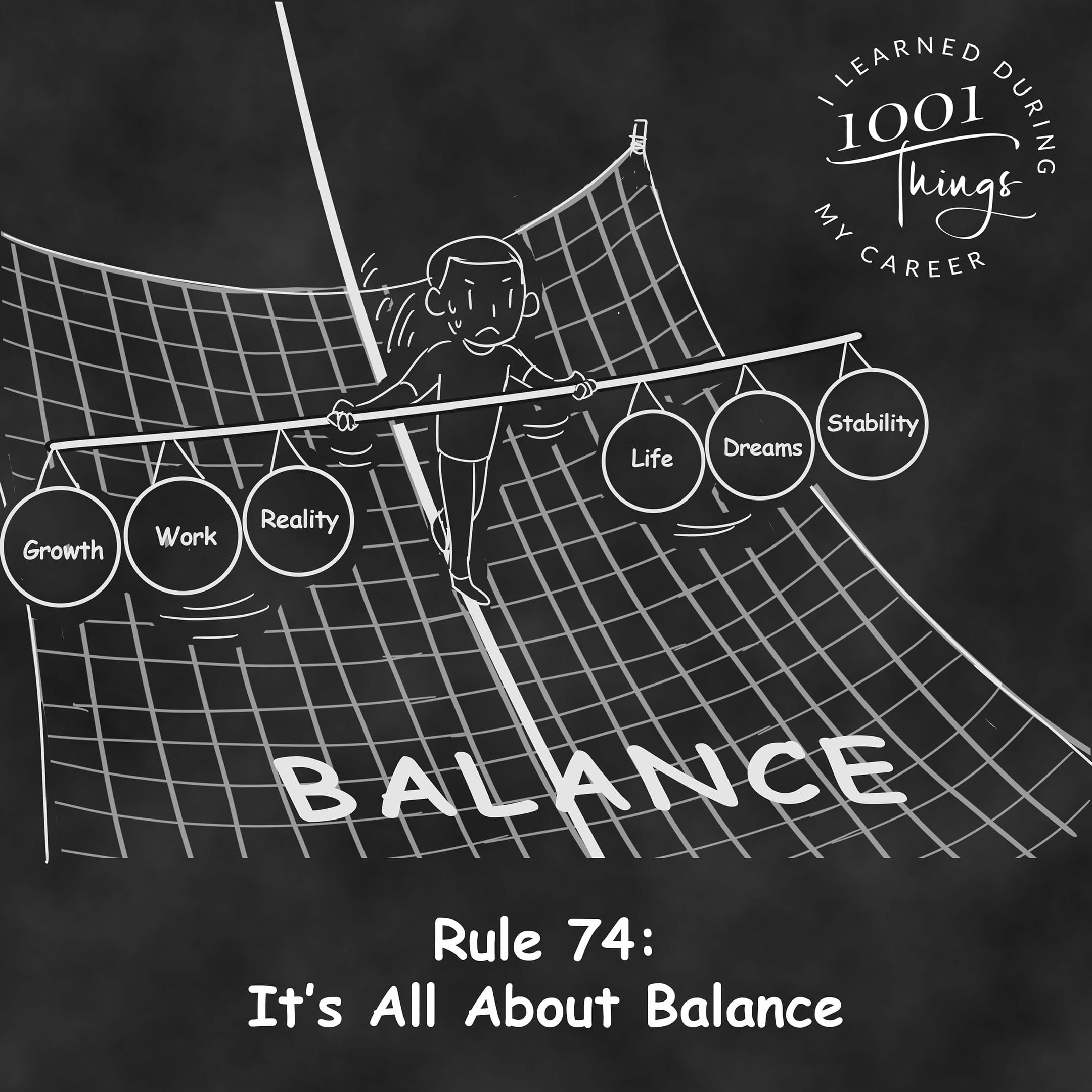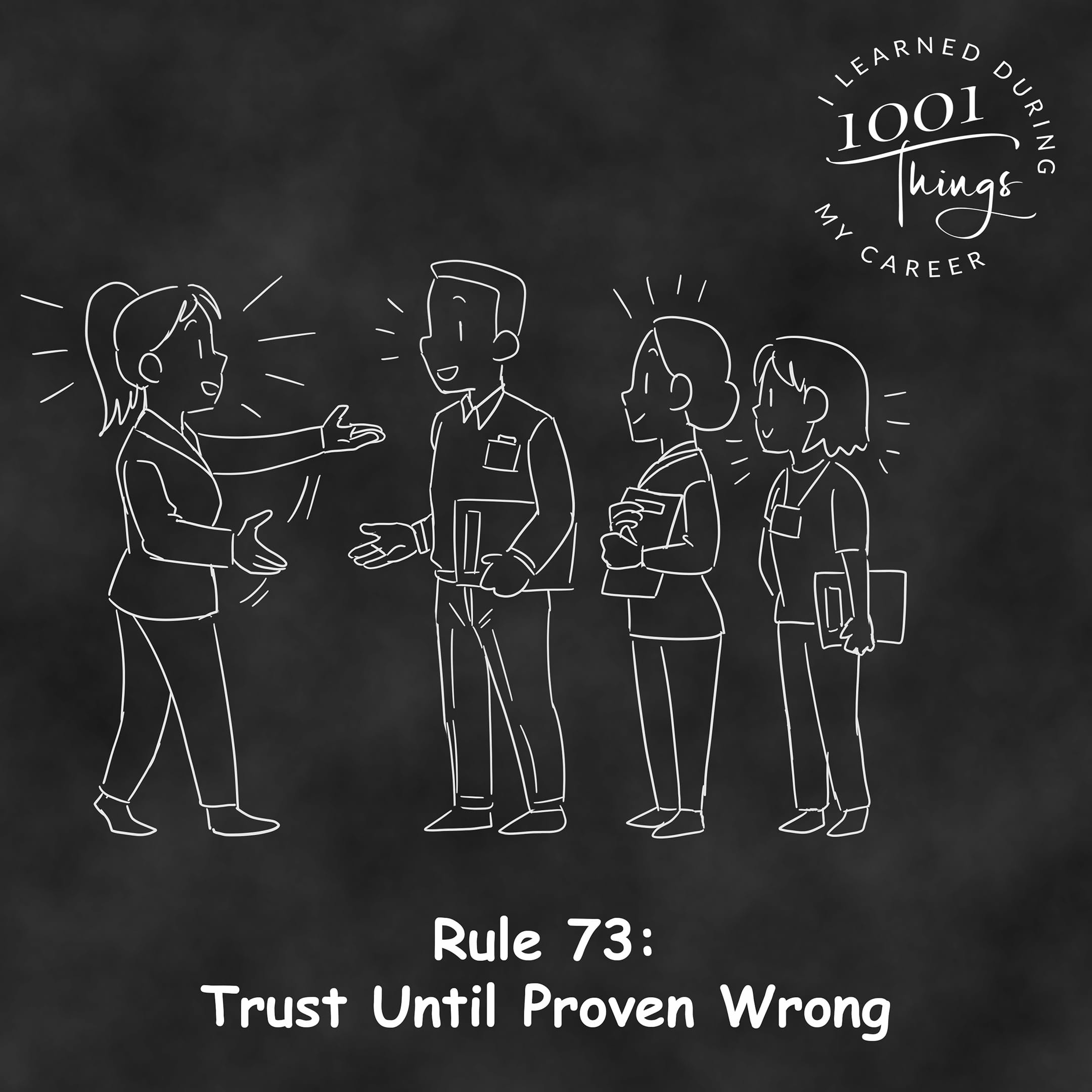Choosing the harder right over the easier wrong is the hardest lesson I had to learn, and it still takes a great deal of discipline to consistently live up to it. It goes beyond simply following rules and regulations: it means doing the “right thing” in the absence of rules and when nobody is watching, even when it comes with unpleasant consequences.
Choosing the harder right starts with seemingly irrelevant things in our daily lives, such as not jumping a red light because you’re late for an important meeting – even if there’s no traffic and no surveillance camera. Choosing the harder right (having to apologize for being late) is certainly not an ideal start for, let’s say, a job interview. But the easier wrong in this example is not only illegal but also dangerous.
It might not seem like a big deal, but choosing the harder right instead of the easier wrong is an all-or-nothing behavior. Where do you draw the line between “not a big deal” and “the real deal”? Does covering up a mistake simply because you didn’t have bad intentions and nobody got harmed justify the easier wrong? And if you allow yourself to choose the easier wrong for a seemingly small issue, will you have the discipline to choose the harder right when the stakes are high? When you have to decline a major business deal because of a conflict of interest? Or when you have to admit to a mistake that comes with potential legal consequences?
Always choosing the harder right instead of the easier wrong is a very powerful behavior, and I have thankfully come across many people who value their integrity as their most precious and valuable asset – far more valuable than any short-term gain they might ever get from doing the easier wrong. So next time you are in a tricky situation, always ask yourself what kind of person you strive to be: will you choose the harder right, even when the easier wrong is tempting?

